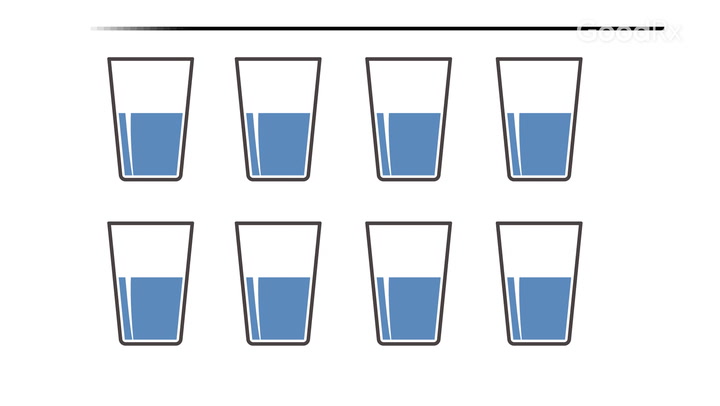
14 Reasons You May Be Suddenly Hungry All the Time
Key takeaways:
Lots of things can lead you to suddenly feel hungry all the time. If you recently changed your diet, your body may need more food. Other possible causes include medication side effects, increased physical activity, or a lack of sleep.
Other reasons you may notice an increased appetite include emotional eating, a physical health condition like hypothyroidism, or a mental health condition like clinical depression.
If you’re concerned about a sudden increase in appetite, reach out to your healthcare team. They can help figure out if there’s an underlying cause for your increased hunger.
Table of contents

If you’re like most people, you think of hunger as a feeling you get when you need a meal or a snack. When you’re eating mostly for survival, hunger is a way to trigger you to meet your body’s need for energy and nutrition.
But sometimes people experience hunger when they don’t need food or calories at all. So what does it mean when you’re suddenly hungry all the time? Here are some possible causes of increased appetite.
1. A lack of fiber, protein, or fat in your diet
Fiber, protein, and fat are all important nutrients to help you feel full after eating. If your diet doesn’t contain enough of these filling components, it could be the cause of feeling hungry all the time:
Protein: Protein is a building block of your cells, immune system, and hormones. Most adults should aim to get 0.8 g per kg of body weight. So, if you weigh 175 lbs, that’s about 63 g of daily protein. For context, an egg has about 6 g of protein. There are lots of ways to add protein to your diet, from animal products to plant-based proteins.
Fiber: Fiber helps you feel full, and it plays many important roles in the body. But most people in the U.S. don’t get enough fiber. Most adult males should aim to get 38 g a day, while adult females need about 25 g. (A cup of blueberries has about 6 g of fiber.) Eating fiber-rich foods is the best way to go (as opposed to supplements).
Fats: Healthy fats are also a key part of a balanced diet.
Save every month on GLP-1 meds with GoodRx
Save an average of $235 on FDA-approved GLP-1s like Ozempic and Zepbound.

2. Infrequent eating
There isn't a single “best” approach to how often you should eat. But dietitians tend to support eating three meals a day with snacks in between meals. A great rule of thumb is to listen to your body and pay attention to cues about when it’s hungry.
People may eat infrequently for different reasons, such as intermittent fasting or calorie-restrictive eating. Studies have shown that intermittent fasting such as timed restrictive dieting and alternate-day fasting don’t stimulate hunger as much as reducing calorie intake daily. But intermittent fasting can make you feel hungry if you significantly restrict calories.
3. Hyperthyroidism
When the thyroid is overactive (hyperthyroidism), your body burns through more calories than usual. And this can make you feel hungrier than usual. Graves’ disease is a condition that leads to the production of too much thyroid hormone. It sends your body into overdrive, leading to unpleasant symptoms, including feeling hungry, anxious, and sweaty.
Eating for your health: There are lots of ways to follow a nutritious diet. A dietitian shares examples of what a balanced diet can look like.
Health benefits of fiber: Fiber is a key part of a nutritious diet, but most people don’t get enough. Here’s why fiber is good for you and how to add more to your diet.
Does it matter how often you eat? Here’s what to know about spacing your meals.
4. Pregnancy
Pregnancy is another important cause of increased hunger. Nausea is a common symptom of early pregnancy. But the need to meet the increased calorie requirements of pregnancy leads to feeling pretty hungry too. For people who don’t experience morning sickness, hunger can be one of the first symptoms of pregnancy.
5. A lack of sleep
Sleep deprivation has also emerged as a cause of excessive hunger. Not getting enough sleep can lead to increased ghrelin levels, which stimulate your appetite. This is just one more reason to set aside at least 7 to 9 hours each night for sleep. If you’re having trouble sleeping, check out these tips for better sleep.
6. Thirst
Sometimes people confuse thirst with hunger. The feelings can be pretty similar, and the signals that drive the sensations are weak, so it may be hard to interpret them. For example, when you feel lightheaded or tired, a lack of food may be the first thing that comes to mind. But it may be your body’s way of asking for a tall glass of water. So, if you’re suddenly feeling hungry, it never hurts to start with hydration first.
Read more like this
Explore these related articles, suggested for readers like you.
7. Medications
Some medications are also linked to feeling hungrier than usual. Here are some common medications that may lead to suddenly having more appetite than usual:
Some atypical antipsychotics like risperidone (Risperdal), quetiapine (Seroquel), or olanzapine (Zyprexa)
Gabapentin and similar medications that help with seizures
Antihistamines like diphenhydramine (Benadryl) or hydroxyzine (Vistaril)
Steroid medications such as prednisone
8. Increased stress or mental health conditions
Chemicals released during stress can increase hunger. Studies have also shown that they may decrease blood flow to the brain that regulates control of food intake.
Some mental health conditions seem to be associated with a sudden increase in appetite. Conditions that can lead to feeling hungry all the time include:
9. Blood sugar regulation issues
If your blood sugar (glucose) is out of balance, you may notice that you feel hungrier. When you eat, the carbohydrates in your food get broken down into glucose (sugar). The hormone insulin then helps your body process that glucose into energy for your body. When your body senses its fuel (glucose) is running low, it starts to send out hunger signals so that you’ll fuel up again.
Those with a condition that affects blood sugar levels or regulation — like diabetes or hypoglycemia — may experience sudden hunger as a response to blood sugar issues.
10. Increased physical activity
Recently started training for a half marathon and noticed a sudden craving for a second helping at dinner? If you’re doing more physical activity, your body will need additional fuel to keep you active for longer. So, if you’re suddenly much hungrier and also exercising more, it could be your body’s way of signaling that you need more fuel.
11. Eating a lot of refined carbs and processed foods
If you notice you’re eating a lot of ultra-processed food or refined carbs, that may be the culprit of your increased appetite. Processed foods that are high in sugar and salt tend to make you feel extra hungry. So you can wind up eating more than you need.
12. Emotional eating
There are lots of triggers for emotional eating. Some people may eat in an attempt to avoid or cope with depression, anxiety, and sadness. The hypothalamus — the part of the brain that processes the signals leading to feeling hungry or full — also has a lot to do with emotions.
Eating foods that are especially sweet or fatty can cause the release of hormones that lead to feeling happier or satisfied, at least for a little while. Over time, emotional eating can reinforce this response.
13. Distracted eating
There are lots of things that pull at your attention, from work and family obligations to digital overload. It can be hard to avoid multitasking, but there are strategies to improve your attention. And sharper attention can have many benefits, including in the context of eating.
Eating while you’re on the computer or your phone may not increase hunger. But it can increase your intake of food and calories. Putting your phone down and practicing mindful eating may help you slow down and enjoy your food more and be more aware of your appetite.
14. Alcohol and hunger
Alcohol is packed with calories, but it doesn’t always make you feel full. There’s a link between alcohol intake and weight gain. Not only does it have a lot of calories, but alcohol also affects your metabolism. Plus, alcohol may increase your appetite. Alcohol affects signals that tell you when you’re full and can make you more likely to overeat.
How can you curb excessive hunger?
If you’re hungry all the time, take a step back and think about what’s triggering your hunger. If you have any concerns about your increased appetite, check in with your primary care provider or a dietitian or nutritionist.
After you’ve checked into underlying health conditions that may be contributing to your hunger, try changing up your snacks and meals. By swapping foods into your diet that are high in protein, fiber, and healthy fats, you may be able to help curb excessive hunger.
Try some of the following food options:
Eggs
Nuts and seeds
Soy products such as tofu
Seafood
Peas, beans, and lentils
Fruits
Vegetables
Avocado
When to get medical attention if your appetite suddenly increases
To figure out if a sudden increase in appetite is a cause for concern, pay attention to other new symptoms you may be experiencing. For example, if you’re suddenly hungry all the time and also feel dizzy or shaky, you may have low blood sugar (hypoglycemia).
It also helps to pay attention to how long you’ve experienced a sudden increase in appetite. If it’s a fairly new feeling, a good first step is to eat more naturally filling foods to see if that helps. And keep in mind that even if you don’t notice any other symptoms, it’s certainly OK to contact your primary care provider to figure out what’s going on.
The bottom line
Lots of things can leave you feeling suddenly hungry all the time. Causes of a sudden increase in appetite can range from a lack of proper nutrition or sleep to blood sugar issues and medication side effects.
If you experience other new symptoms along with a sudden increase in appetite, reach out to your healthcare team. They can help rule out any underlying health conditions that may be at play.
Why trust our experts?



References
American College of Obstetricians and Gynecologists. (2022). Healthy eating.
Bini, J., et al. (2022). Stress-level glucocorticoids increase fasting hunger and decrease cerebral blood flow in regions regulating eating. NeuroImage: Clinical.
Carli, M., et al. (2021). Atypical antipsychotics and metabolic syndrome: From molecular mechanisms to clinical differences. Pharmaceuticals.
Chambers, L., et al. (2015). Optimising foods for satiety. Trends in Food Science & Technology.
Elsworth, R. L., et al. (2023). The effect of intermittent fasting on appetite: A systematic review and meta-analysis. Nutrients.
Fong, M., et al. (2021). ‘Joining the dots’: individual, sociocultural and environmental links between alcohol consumption, dietary intake and body weight—a narrative review. Nutrients.
Gordon, B. (2021). Choose healthy fats. Eatright.org.
Greer, S. M., et al. (2014). The impact of sleep deprivation on food desire in the human brain. Nature Communications.
Hardy, K. (2023). Polyphagia – increased appetite. Diabetes.co.uk.
Konttinen, H. (2020). Emotional eating and obesity in adults: The role of depression, sleep and genes. The Proceedings of the Nutrition Society.
La Marra, M., et al. (2020). Using smartphones when eating increases caloric intake in young people: An overview of the literature. Frontiers in Psychology.
Mattes, R. D. (2011). Hunger and thirst: Issues in measurement and prediction of eating and drinking. Physiology & Behavior.
MedlinePlus. (2022). Appetite - increased.
MyPlate. (n.d.). Protein foods. U.S. Department of Agriculture.
Traversy, G., et al. (2015). Alcohol consumption and obesity: An update. Current Obesity Reports.





























